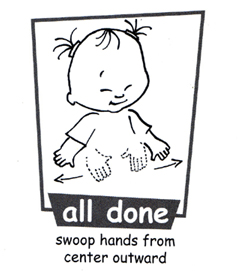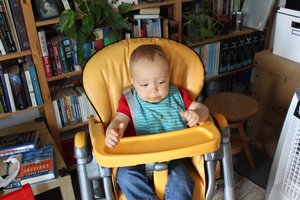The other day my little girl did not like what I was doing (I think I was taking something away…), and I suddenly realised her “naiiiii” might well be “nein”. (Sadly, “no” is a word she hears often from me, i.e. in German.)
On the same night I found myself wondering if the oft-repeated syllable “ma” might in certain circumstances not designate me 🙁 but rather the similar sounding “moi”, as in “à moi” (“mine”). The situation would have fit that.
A day or two later, my German neighbour (also a young mother) made a similar remark about the “naiiii” sound, and I gave her my theory when shortly after the “ma” situation came up. She agreed, so I feel confirmed I have two first words on my hands.
Not exactly my pick for first words, but toddlers are toddlers.
I haven’t managed to record either of those just yet, however I got her to “give me four” as I was counting:
That’s the one number that stuck when her childminder counted with her from one to four in French. I’m not sure how much she understands the counting, but she seems to know that this is what is expected after “1-2-3”, in either language. 🙂
It’s a start.
Some more jargon, fresh from tonight. (Sorry, not very loud, but I had to keep the MP3 player-cum-recording device out of her sight, or she’d have stopped talking and tried to grab it instead.)



